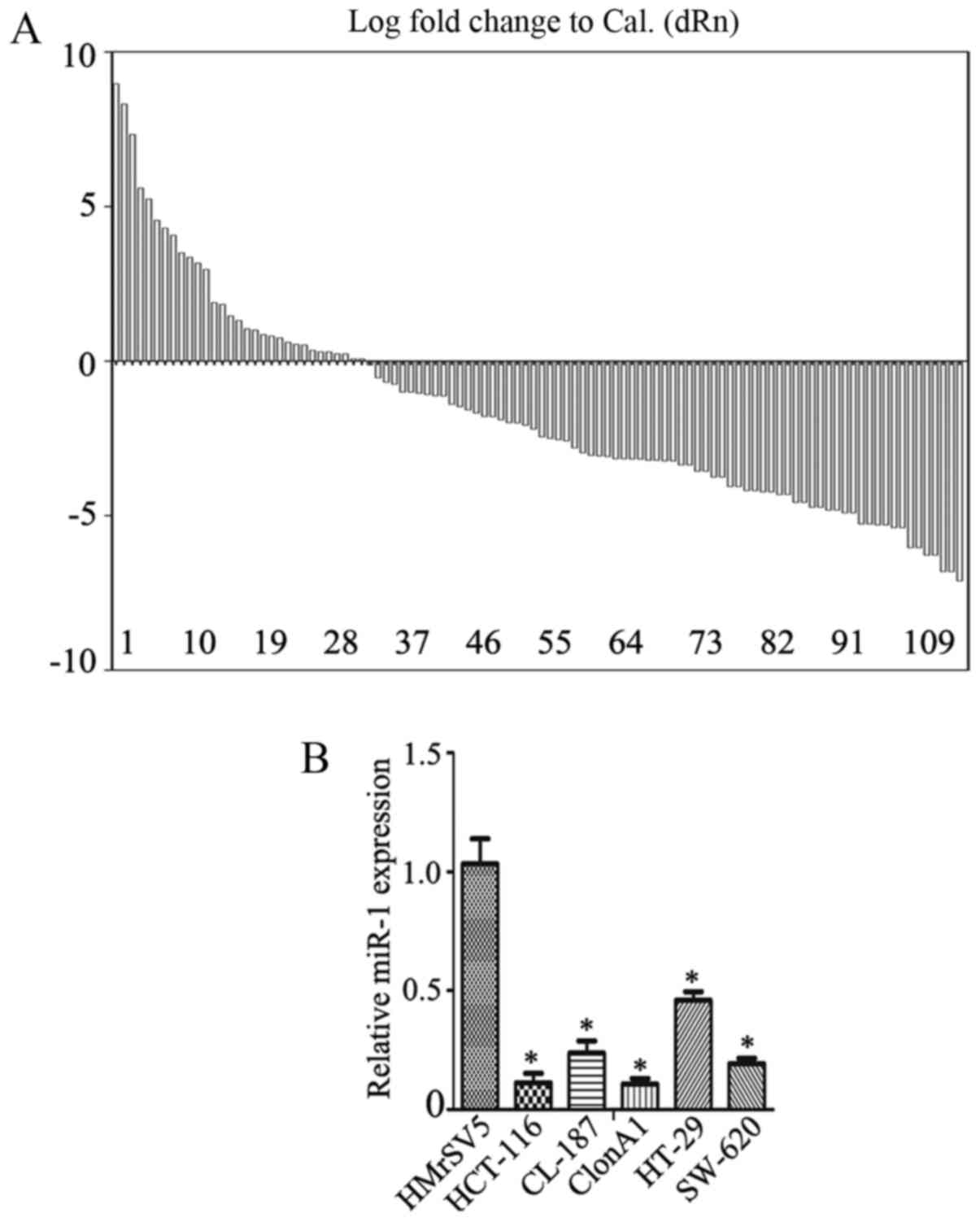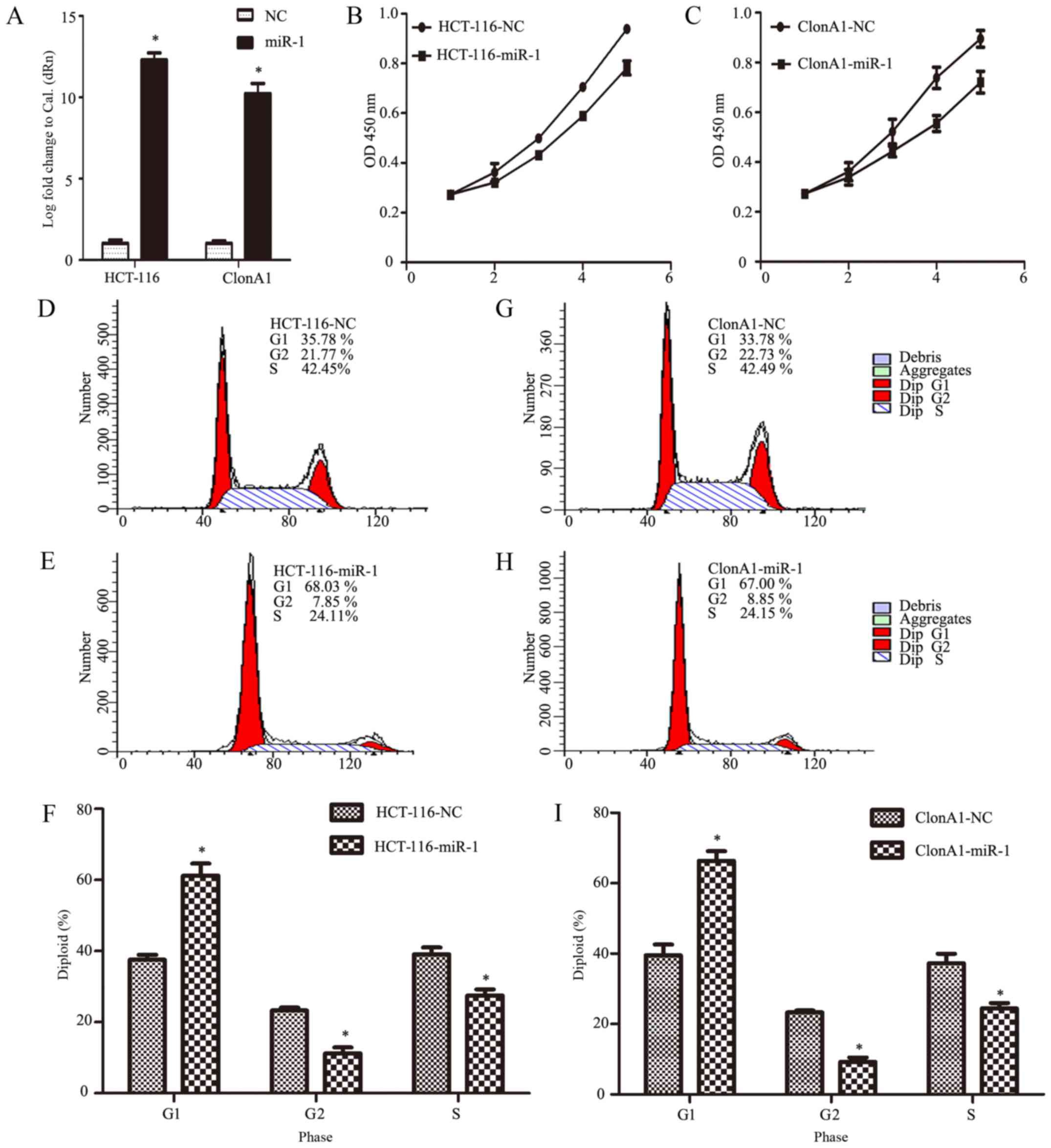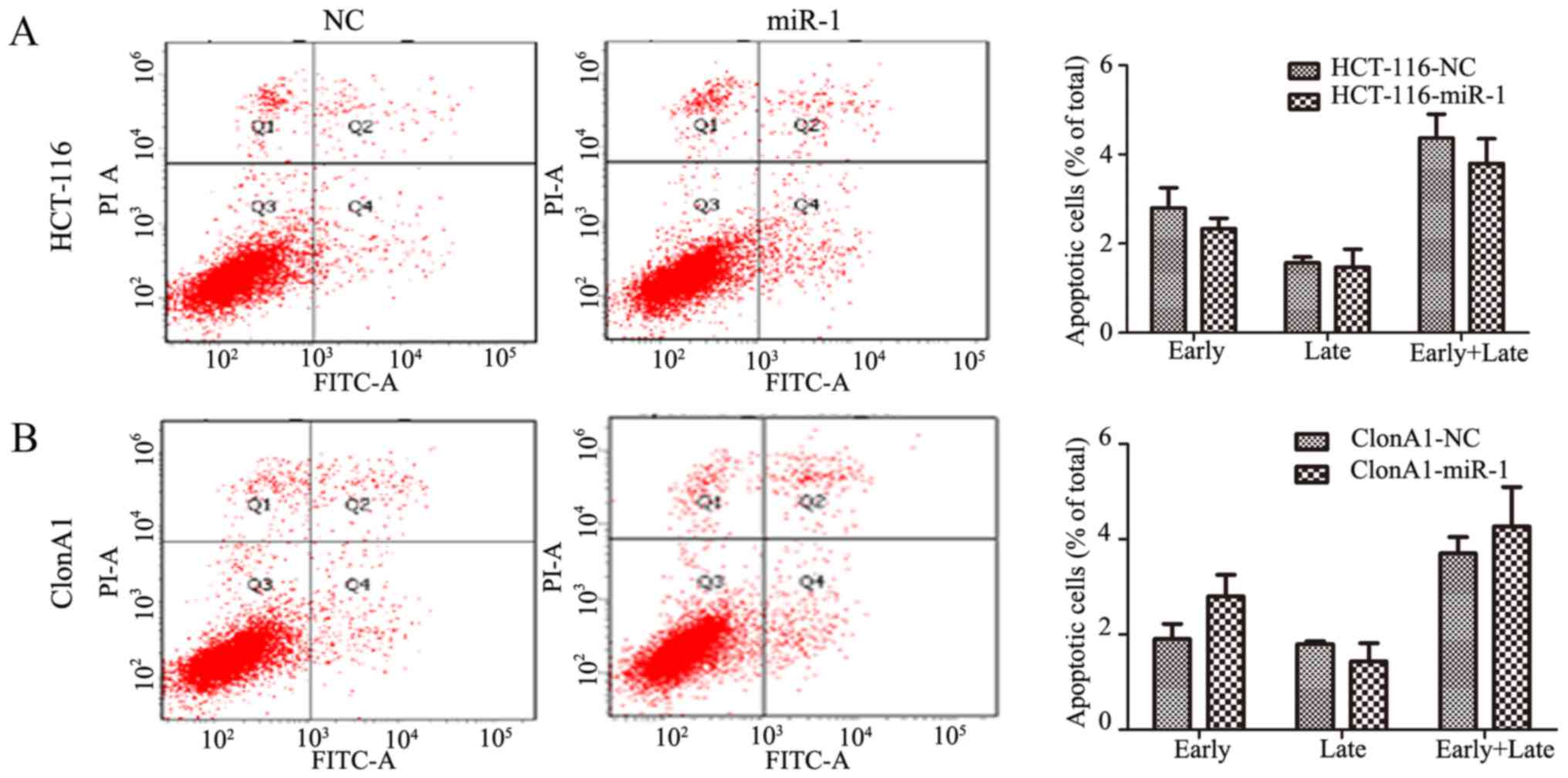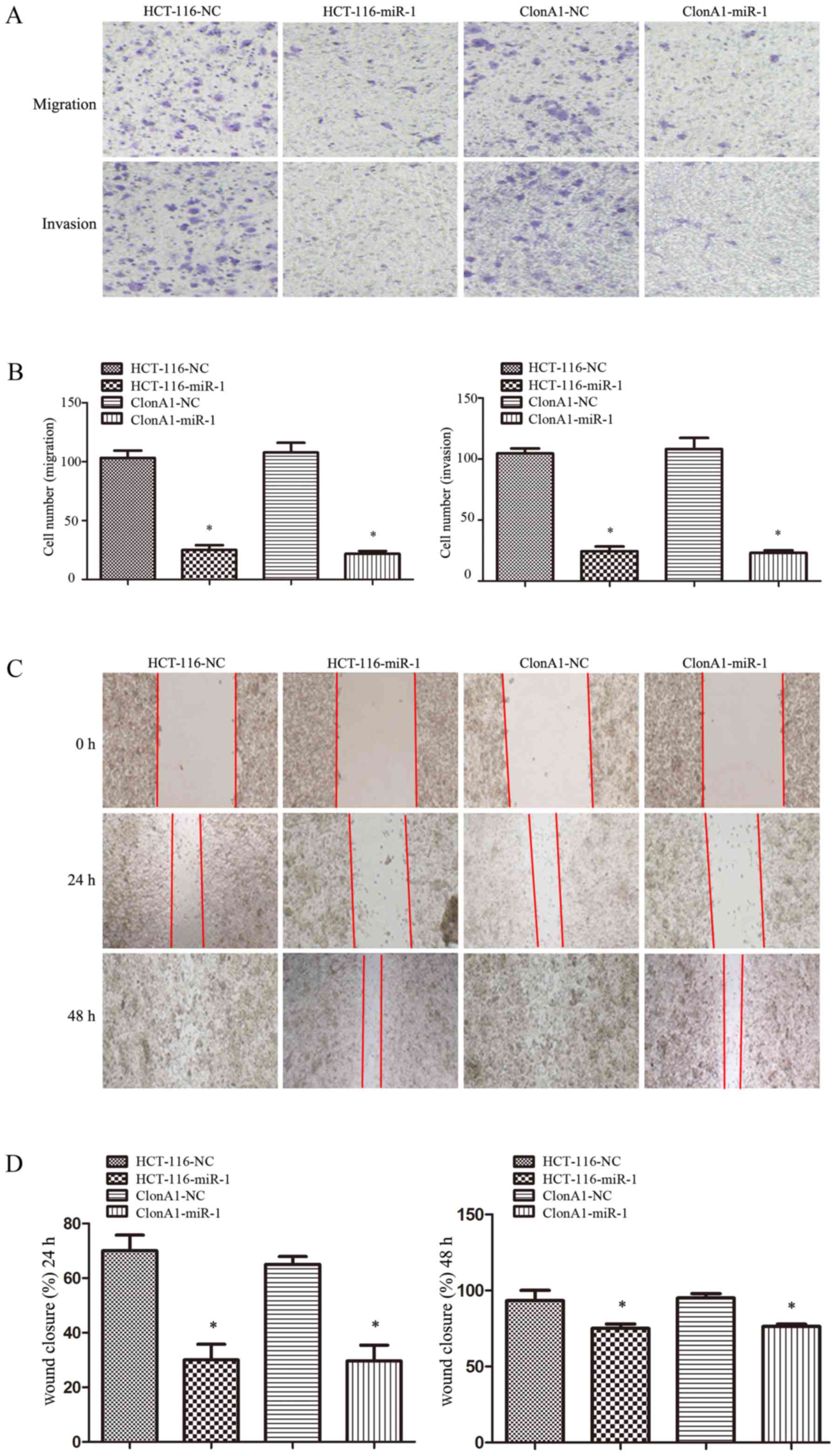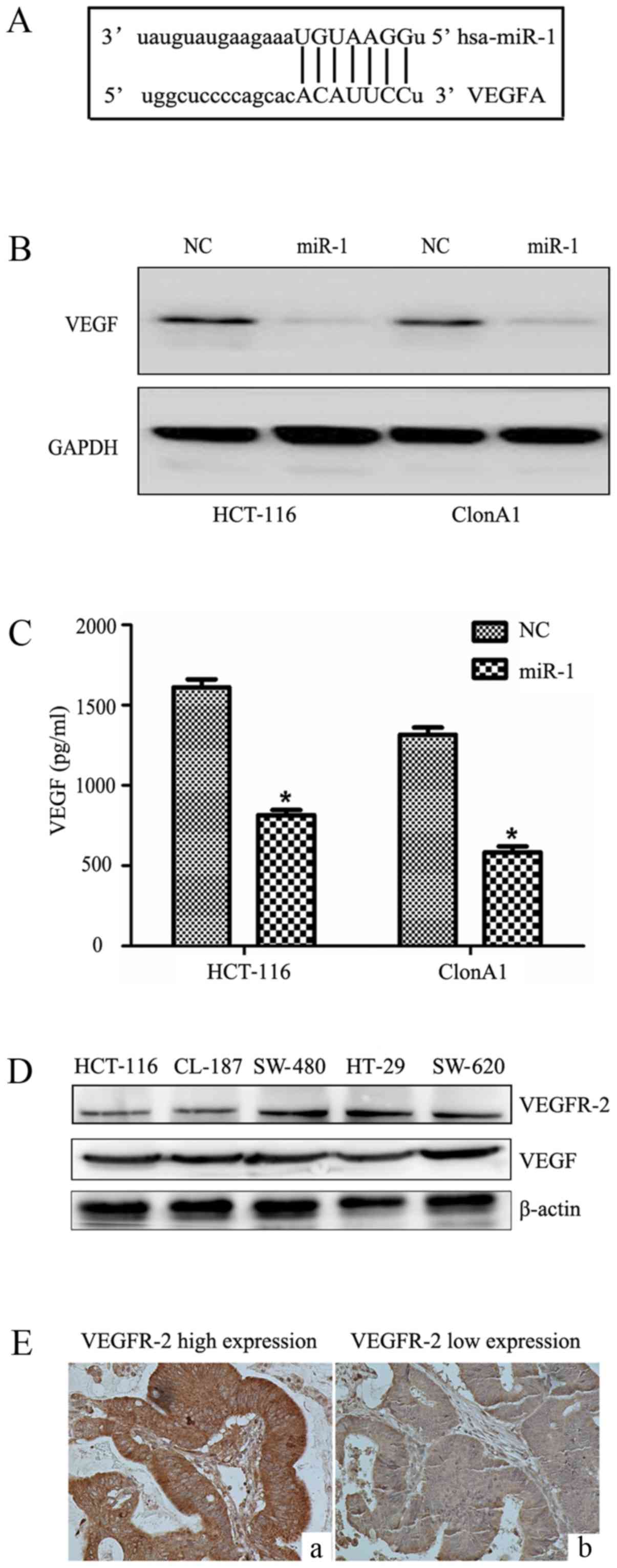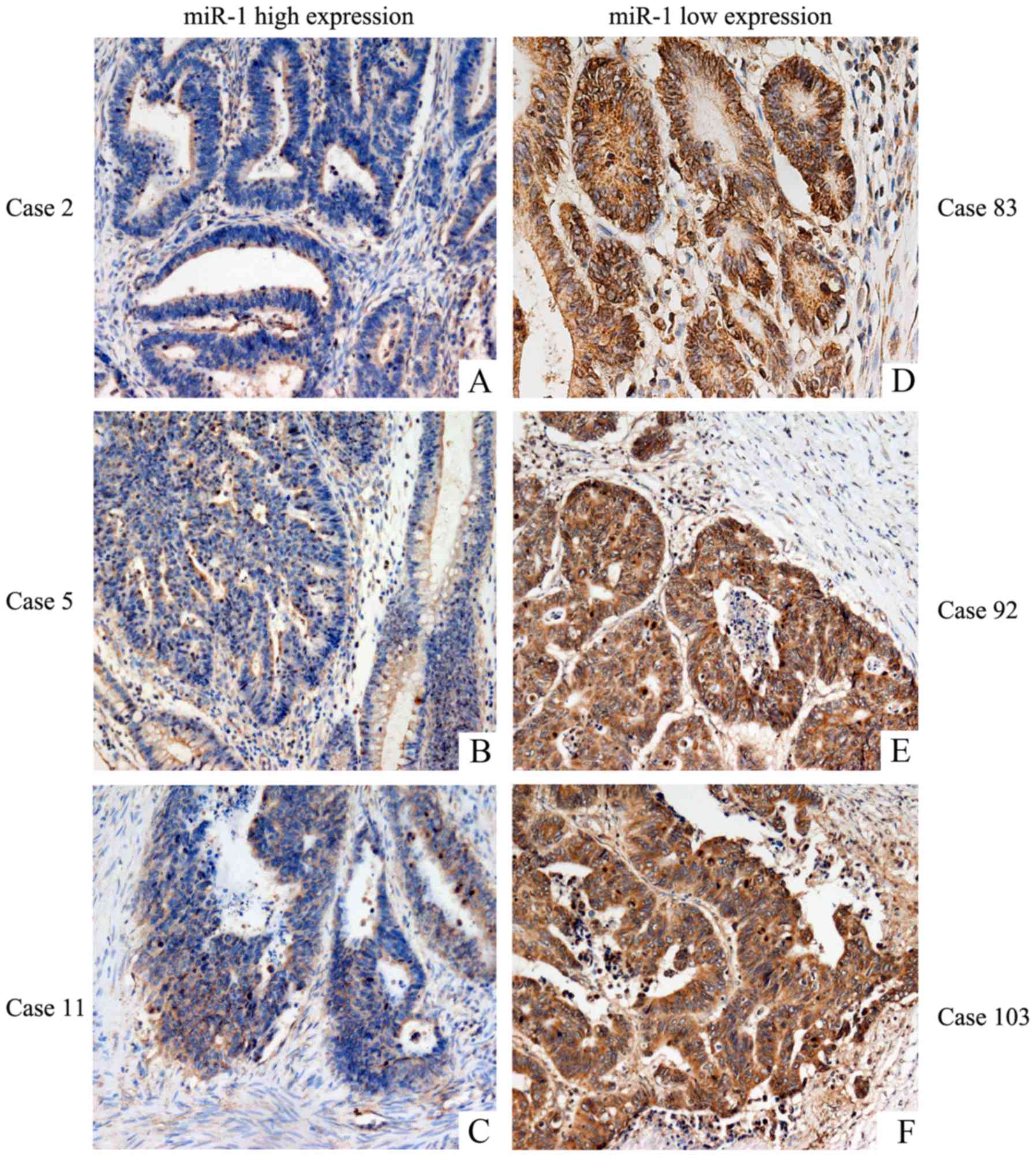|
1
|
Clarke SJ, Karapetis CS, Gibbs P, Pavlakis
N, Desai J, Michael M, Tebbutt NC, Price TJ and Tabernero J:
Overview of biomarkers in metastatic colorectal cancer: Tumour,
blood and patient-related factors. Crit Rev Oncol Hematol.
85:121–135. 2013. View Article : Google Scholar : PubMed/NCBI
|
|
2
|
Sigurdsson JA, Getz L, Sjönell G,
Vainiomäki P and Brodersen J: Marginal public health gain of
screening for colorectal cancer: Modelling study, based on WHO and
national databases in the Nordic countries. J Eval Clin Pract.
19:400–407. 2013. View Article : Google Scholar : PubMed/NCBI
|
|
3
|
Kumar R, Jain K, Beeke C, Price TJ,
Townsend AR, Padbury R, Roder D, Young GP, Richards A and Karapetis
CS: A population-based study of metastatic colorectal cancer in
individuals aged ≥80 years: Findings from the South Australian
clinical registry for metastatic colorectal cancer. Cancer.
119:722–728. 2013. View Article : Google Scholar : PubMed/NCBI
|
|
4
|
Melucci E, Cosimelli M, Carpanese L, Pizzi
G, Izzo F, Fiore F, Golfieri R, Giampalma E, Sperduti I, Ercolani
C, et al: Decrease of survivin, p53 and Bcl-2 expression in
chemorefractory colorectal liver metastases may be predictive of
radiosensivity after radioembolization with yttrium-90 resin
microspheres. J Exp Clin Cancer Res. 32:132013. View Article : Google Scholar : PubMed/NCBI
|
|
5
|
Rawson JB and Bapat B: Epigenetic
biomarkers in colorectal cancer diagnostics. Expert Rev Mol Diagn.
12:499–509. 2012. View Article : Google Scholar : PubMed/NCBI
|
|
6
|
Miller S and Steele S: Novel molecular
screening approaches in colorectal cancer. J Surg Oncol.
105:459–467. 2012. View Article : Google Scholar : PubMed/NCBI
|
|
7
|
Akbari Moqadam F, Pieters R and den Boer
ML: The hunting of targets: Challenge in miRNA research. Leukemia.
27:16–23. 2013. View Article : Google Scholar : PubMed/NCBI
|
|
8
|
Okayama H, Schetter AJ and Harris CC:
MicroRNAs and inflammation in the pathogenesis and progression of
colon cancer. Dig Dis. 30 (Suppl 2):S9–S15. 2012. View Article : Google Scholar
|
|
9
|
Kanematsu S, Tanimoto K, Suzuki Y and
Sugano S: Screening for possible miRNA-mRNA associations in a colon
cancer cell line. Gene. 533:520–531. 2014. View Article : Google Scholar : PubMed/NCBI
|
|
10
|
Katoh M: Therapeutics targeting
angiogenesis: Genetics and epigenetics, extracellular miRNAs and
signaling networks (Review). Int J Mol Med. 32:763–767. 2013.
View Article : Google Scholar : PubMed/NCBI
|
|
11
|
Pereira DM, Rodrigues PM, Borralho PM and
Rodrigues CM: Delivering the promise of miRNA cancer therapeutics.
Drug Discov Today. 18:282–289. 2013. View Article : Google Scholar : PubMed/NCBI
|
|
12
|
Roitbak T, Bragina O, Padilla JL and
Pickett GG: The role of microRNAs in neural stem cell-supported
endothelial morphogenesis. Vasc Cell. 3:252011. View Article : Google Scholar : PubMed/NCBI
|
|
13
|
Kusakabe R, Tani S, Nishitsuji K, Shindo
M, Okamura K, Miyamoto Y, Nakai K, Suzuki Y, Kusakabe TG and Inoue
K: Characterization of the compact bicistronic microRNA precursor,
miR-1/miR-133, expressed specifically in Ciona muscle tissues. Gene
Expr Patterns. 13:43–50. 2013. View Article : Google Scholar : PubMed/NCBI
|
|
14
|
Li L, Sarver AL, Alamgir S and Subramanian
S: Downregulation of microRNAs miR-1, −206 and −29 stabilizes PAX3
and CCND2 expression in rhabdomyosarcoma. Lab Invest. 92:571–583.
2012. View Article : Google Scholar : PubMed/NCBI
|
|
15
|
Nasser MW, Datta J, Nuovo G, Kutay H,
Motiwala T, Majumder S, Wang B, Suster S, Jacob ST and Ghoshal K:
Down-regulation of micro-RNA-1 (miR-1) in lung cancer. Suppression
of tumorigenic property of lung cancer cells and their
sensitization to doxorubicin-induced apoptosis by miR-1. J Biol
Chem. 283:33394–333405. 2008. View Article : Google Scholar : PubMed/NCBI
|
|
16
|
Wu X, Li S, Xu X, Wu S, Chen R, Jiang Q,
Li Y and Xu Y: The potential value of miR-1 and miR-374b as
biomarkers for colorectal cancer. Int J Clin Exp Pathol.
8:2840–2851. 2015.PubMed/NCBI
|
|
17
|
Sayagués JM, Corchete LA, Gutiérrez ML,
Sarasquete ME, Del Mar Abad M, Bengoechea O, Fermiñán E, Anduaga
MF, Del Carmen S, Iglesias M, et al: Genomic characterization of
liver metastases from colorectal cancer patients. Oncotarget.
7:72908–72922. 2016. View Article : Google Scholar : PubMed/NCBI
|
|
18
|
Wang X, Chen X, Fang J and Yang C:
Overexpression of both VEGF-A and VEGF-C in gastric cancer
correlates with prognosis, and silencing of both is effective to
inhibit cancer growth. Int J Clin Exp Pathol. 6:586–597.
2013.PubMed/NCBI
|
|
19
|
Martins SF, Garcia EA, Luz MA, Pardal F,
Rodrigues M and Filho AL: Clinicopathological correlation and
prognostic significance of VEGF-A, VEGF-C, VEGFR-2 and VEGFR-3
expression in colorectal cancer. Cancer Genomics Proteomics.
10:55–67. 2013.PubMed/NCBI
|
|
20
|
Ekinci D, Kargi A, Yalcin AD and Savas B:
The role of VEGF and other parameters in tracking the clinical
course in metronomic chemotherapy. J BUON. 18:245–252.
2013.PubMed/NCBI
|
|
21
|
Zhao SF, Yang XD, Lu MX, Sun GW, Wang YX,
Zhang YK, Pu YM and Tang EY: Prognostic significance of VEGF
immunohistochemical expression in oral cancer: A meta-analysis of
the literature. Tumour Biol. 34:3165–3171. 2013. View Article : Google Scholar : PubMed/NCBI
|
|
22
|
Yang Y, Zhang Y, Iwamoto H, Hosaka K, Seki
T, Andersson P, Lim S, Fischer C, Nakamura M, Abe M, et al:
Discontinuation of anti-VEGF cancer therapy promotes metastasis
through a liver revascularization mechanism. Nat Commun.
7:126802016. View Article : Google Scholar : PubMed/NCBI
|
|
23
|
Zhang D, Zhou J and Dong M: Dysregulation
of microRNA-34a expression in colorectal cancer inhibits the
phosphorylation of FAK via VEGF. Dig Dis Sci. 59:958–67. 2014.
View Article : Google Scholar : PubMed/NCBI
|
|
24
|
Zhao Y, Ransom JF, Li A, Vedantham V, von
Drehle M, Muth AN, Tsuchihashi T, McManus MT, Schwartz RJ and
Srivastava D: Dysregulation of cardiogenesis, cardiac conduction,
and cell cycle in mice lacking miRNA-1-2. Cell. 129:303–317. 2007.
View Article : Google Scholar : PubMed/NCBI
|
|
25
|
Xiao H, Zeng J, Li H, Chen K, Yu G, Hu J,
Tang K, Zhou H, Huang Q, Li A, et al: MiR-1 downregulation
correlates with poor survival in clear cell renal cell carcinoma
where it interferes with cell cycle regulation and metastasis.
Oncotarget. 6:13201–13215. 2015. View Article : Google Scholar : PubMed/NCBI
|
|
26
|
Leone V, D'Angelo D, Rubio I, de Freitas
PM, Federico A, Colamaio M, Pallante P, Medeiros-Neto G and Fusco
A: MiR-1 is a tumor suppressor in thyroid carcinogenesis targeting
CCND2, CXCR4, and SDF-1alpha. J Clin Endocrinol Metab.
96:E1388–E1398. 2011. View Article : Google Scholar : PubMed/NCBI
|
|
27
|
Ueda T, Volinia S, Okumura H, Shimizu M,
Taccioli C, Rossi S, Alder H, Liu CG, Oue N, Yasui W, et al:
Relation between microRNA expression and progression and prognosis
of gastric cancer: A microRNA expression analysis. Lancet Oncol.
11:136–46. 2010. View Article : Google Scholar : PubMed/NCBI
|
|
28
|
Nohata N, Sone Y, Hanazawa T, Fuse M,
Kikkawa N, Yoshino H, Chiyomaru T, Kawakami K, Enokida H, Nakagawa
M, et al: miR-1 as a tumor suppressive microRNA targeting TAGLN2 in
head and neck squamous cell carcinoma. Oncotarget. 2:29–42. 2011.
View Article : Google Scholar : PubMed/NCBI
|
|
29
|
Jiang S, Zhao C, Yang X, Li X, Pan Q,
Huang H, Wen X, Shan H, Li Q, Du Y and Zhao Y: miR-1 suppresses the
growth of esophageal squamous cell carcinoma in vivo and in vitro
through the downregulation of MET, cyclin D1 and CDK4 expression.
Int J Mol Med. 38:113–122. 2016. View Article : Google Scholar : PubMed/NCBI
|
|
30
|
Slattery ML, Herrick JS, Pellatt DF,
Mullany LE, Stevens JR, Wolff E, Hoffman MD, Wolff RK and Samowitz
W: Site-specific associations between miRNA expression and survival
in colorectal cancer cases. Oncotarget. 7:60193–60205. 2016.
View Article : Google Scholar : PubMed/NCBI
|
|
31
|
Grahnén A and Sjöholm I:
Spectropolarimetric determination of unconjugated bilirubin in
human serum. Z Klin Chem Klin Biochem. 12:2201974.
|
|
32
|
Goel HL and Mercurio AM: VEGF targets the
tumour cell. Nat Rev Cancer. 13:871–882. 2013. View Article : Google Scholar : PubMed/NCBI
|
|
33
|
Chekhonin VP, Shein SA, Korchagina AA and
Gurina OI: VEGF in tumor progression and targeted therapy. Curr
Cancer Drug Targets. 13:4232013. View Article : Google Scholar : PubMed/NCBI
|
|
34
|
Weijts BG, Bakker WJ, Cornelissen PW,
Liang KH, Schaftenaar FH, Westendorp B, de Wolf CA, Paciejewska M,
Scheele CL, Kent L, et al: E2F7 and E2F8 promote angiogenesis
through transcriptional activation of VEGFA in cooperation with
HIF1. EMBO J. 31:3871–3884. 2012. View Article : Google Scholar : PubMed/NCBI
|
|
35
|
Kang Z, Zhu H, Luan H, Han F and Jiang W:
Curculigoside A induces angiogenesis through VCAM-1/Egr-3/CREB/VEGF
signaling pathway. Neuroscience. 267:2322014. View Article : Google Scholar : PubMed/NCBI
|
|
36
|
Anna L, Eugene K, Mayumi J and Matter ML:
Stretch-induced Hypertrophy activates NFkB-mediated VEGF secretion
in adult cardiomyocytes. Plos One. 6:e290552011. View Article : Google Scholar : PubMed/NCBI
|
|
37
|
Goos JA, de Cuba EM, Coupé VM, Diosdado B,
Delis-Van Diemen PM, Karga C, Beliën JA, Menke-Van der Houven van
Oordt CW, Geldof AA, Meijer GA, et al: Glucose Transporter 1
(SLC2A1) and vascular endothelial growth factor A (VEGFA) predict
survival after resection of colorectal cancer liver metastasis. Ann
Surg. 263:138–145. 2016.PubMed/NCBI
|
|
38
|
Cao D, Hou M, Guan YS, Jiang M, Yang Y and
Gou HF: Expression of HIF-1alpha and VEGF in colorectal cancer:
Association with clinical outcomes and prognostic implications. BMC
Cancer. 9:4322009. View Article : Google Scholar : PubMed/NCBI
|
|
39
|
Zhai Z, Yu X, Yang B, Zhang Y, Zhang L, Li
X and Sun H: Colorectal cancer heterogeneity and targeted therapy:
Clinical implications, challenges and solutions for treatment
resistance. Semin Cell Dev Biol. 64:107–115. 2017. View Article : Google Scholar : PubMed/NCBI
|
|
40
|
Loupakis F, Cremolini C, Yang D, Salvatore
L, Zhang W, Wakatsuki T, Bohanes P, Schirripa M, Benhaim L, Lonardi
S, et al: Prospective validation of candidate SNPs of VEGF/VEGFR
pathway in metastatic colorectal cancer patients treated with
first-line FOLFIRI plus bevacizumab. PLoS One. 8:e667742013.
View Article : Google Scholar : PubMed/NCBI
|
|
41
|
Fakih M: The evolving role of
VEGF-targeted therapies in the treatment of metastatic colorectal
cancer. Expert Rev of Anticancer Ther. 13:427–438. 2013. View Article : Google Scholar
|
|
42
|
Yim E, Vivas A, Maderal A and Kirsner RS:
Neuropathy and ankle mobility abnormalities in patients with
chronic venous disease. JAMA Dermatol. 150:385–389. 2014.
View Article : Google Scholar : PubMed/NCBI
|















